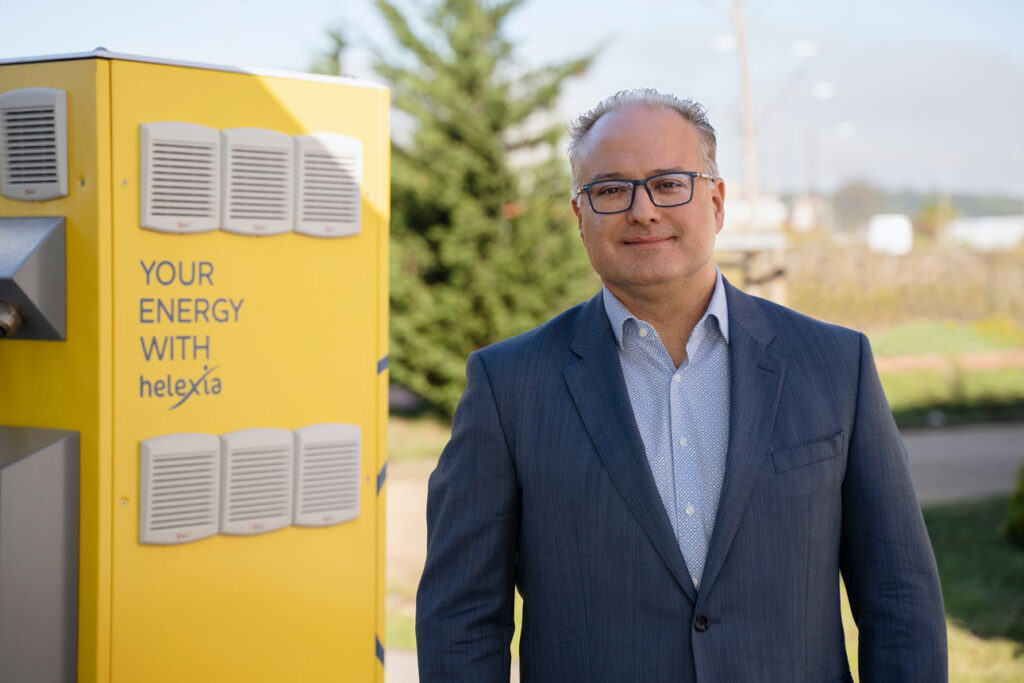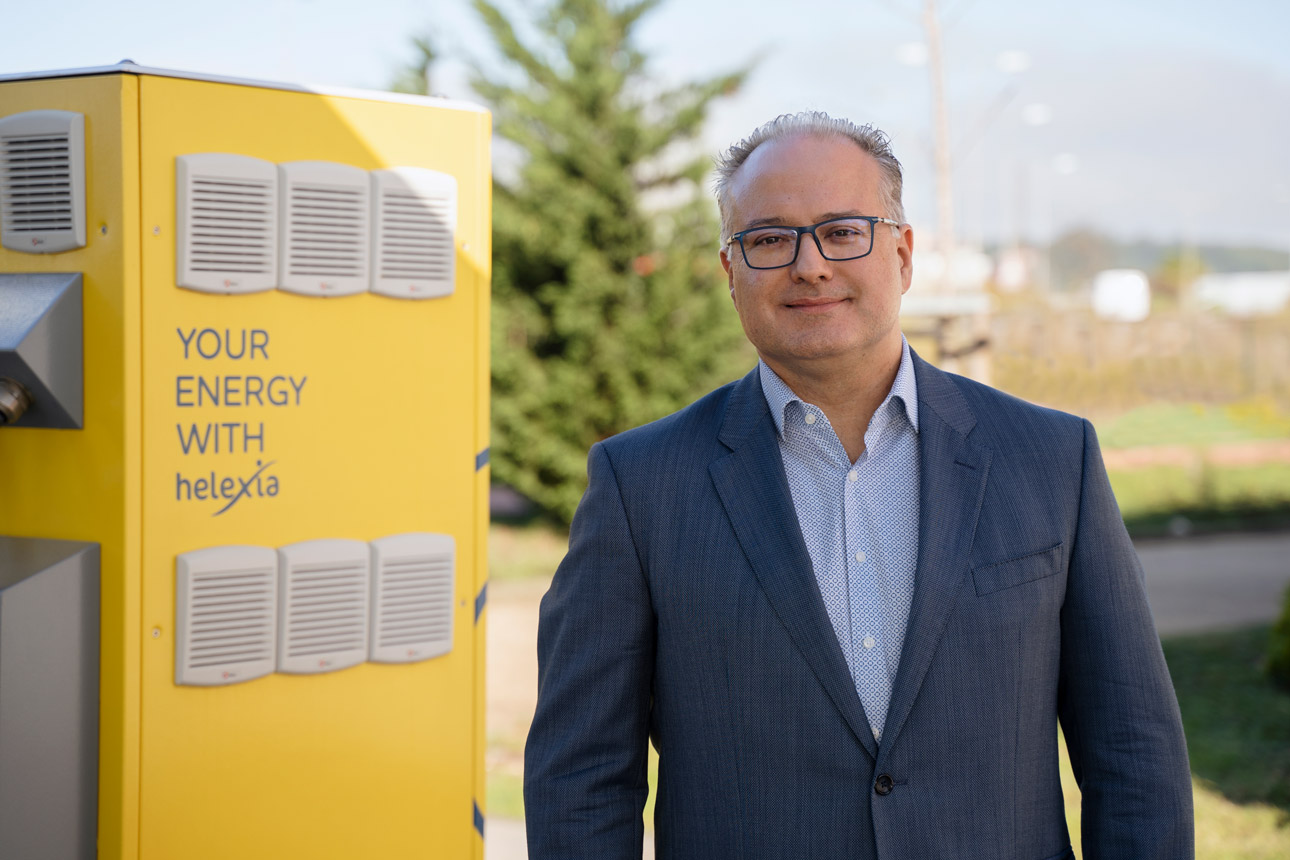A descarbonização tornou-se um imperativo e há cada vez mais empresas a buscarem soluções quer para si, quer para estar ao lado do consumidor. Em entrevista à DISTRIBUIÇÃO HOJE, Pedro Antão Alves, Sales Director na Helexia Portugal, fala-nos sobre o percurso da empresa e lembra alguns dos projetos que têm desenvolvido em Portugal, ao lado dos retalhistas.
Durante os últimos anos, o retalho tem sofrido alguma disrupção no que podemos considerar a experiência de consumidor. De que forma verificaram, na Helexia, esta alteração?
Como a Helexia fornece soluções para a geração de energia renovável e a gestão de energia, o foco é a operação do estabelecimento e não diretamente a experiência do consumidor. No entanto, os consumidores estão mais sensíveis ao preço e ao impacte ambiental das suas escolhas. E nesse sentido, os clientes da Helexia beneficiam da redução dos custos com energia e da pegada carbónica, podendo endereçar as preocupações dos seus clientes.
Outra preocupação muito importante é o conforto, que pode fazer um consumidor permanecer mais tempo ou abandonar o local mais rápido devido à sua perceção de conforto, influenciada por parâmetros como a temperatura e humidade, mas também pela qualidade do ar interior.
Consideram que hoje há um novo paradigma em que a jornada do cliente começa ainda antes de entrar no estabelecimento?
Claramente! Em particular nas gerações mais novas, Millennials e Gen Z, a jornada do cliente inicia maioritariamente no digital e termina eventualmente no espaço físico. E as escolhas, de produto, local de compra ou meio de transporte são fortemente influenciadas pelo impacte ambiental, em particular pela emissão de gases com efeito de estufa.
É imperativo poder informar o consumidor sobre qual o impacto das suas decisões. E mais uma vez, a opção por energia renovável pode influenciar positivamente o processo de escolha.

De que forma é importante robustecer essa experiência, oferecendo, por exemplo, nos espaços comerciais um local onde fazer o carregamento de um veículo elétrico?
Atualmente é essencial! Estima-se que existem mais de cem mil veículos elétricos e híbridos na frota automóvel em circulação, o que corresponde a cerca de 1,5%.
Considerando a média nacional, a cada 1000 visitantes que se deslocam de automóvel, 15 utilizariam um veículo com potencial para utilizar um carregador elétrico.
Nas regiões de maior densidade populacional, como as cidades, essa percentagem será certamente superior e muitos consumidores não terão condições para realizar o carregamento em casa ou na via pública de forma conveniente. Existem atualmente soluções para carregar mais de 200 km de um veículo elétrico em cerca de 30 minutos, o que permite aos consumidores rentabilizar o tempo gasto no estabelecimento.
“É imperativo poder informar o consumidor qual o impacto das suas decisões. E mais uma vez, a opção por energia renovável pode influenciar positivamente o processo de escolha”
Pedro Alves, Sales Director Helexia Portugal
Descarbonização da economia
Por outro lado, existe também uma crescente preocupação com o tema sustentabilidade. Como têm visto as empresas portuguesas reagir a este desafio?
Embora seja um assunto que não capta a atenção dos mass media, está em curso uma revolução silenciosa de descarbonização da economia. Se há alguns anos o foco para a instalação de uma central fotovoltaica era o potencial de poupança, hoje a redução da pegada carbónica é um fator igualmente relevante.
Por um lado, as empresas definiram elas próprias objetivos de descarbonização, assim como as cadeias de fornecimento de que fazem parte. Por outro, há uma apetência dos investidores por projetos com baixa incorporação de emissões de gases com efeito de estufa.
Tanto no setor de retalho como no industrial, há uma grande procura por soluções de descarbonização.
Com os custos da energia a aumentar, com crescentes preocupações com a pegada carbónica, de que forma têm auxiliado retalhistas e produtores a melhorar a sua eficiência?
A Helexia tem contribuído com um conjunto de soluções tecnológicas e financeiras, das quais destacaria:
- A geração de energia renovável descentralizada, através de centrais fotovoltaicas instaladas na cobertura ou parques de estacionamento;
- A instalação de carregadores de veículos elétricos, quer para a própria frota automóvel quer para os seus clientes;
- A gestão de energia através da monitorização e análise contínuas, com o objetivo de identificar oportunidades de poupança com a operação dos sistemas consumidores ou com o investimento em soluções mais eficientes.
Para todas as soluções, a Helexia pode ser investidor e o cliente beneficia das poupanças a partir do primeiro dia de contrato. Até ao início deste ano, as centrais operadas pela Helexia em Portugal tinham produzido 34 GWh de energia limpa, o que permitiu aos seus clientes poupar 1,1 milhões de euros e evitar a emissão de 16 mil toneladas de CO2.
Tem sido um caminho cheio de desafios, globais e locais, mas com resultados muito interessantes para a Helexia e para os clientes. A especialização em clientes deste setor tem permitido endereçar de forma mais consistente as suas preocupações e executar as obras de construção de forma mais consistente e com menor impacto para a operação diária.
As boas relações profissionais com alguns players alavancaram o desenvolvimento de projetos inovadores e aumento da oferta da Helexia. Mais recentemente, as alterações na regulamentação têm permitido viabilizar projetos que tinham sido abandonados.
O que podemos esperar de novos projetos para 2023?
2023 continuará a ser um ano de crescimento para as empresas de energia, em Portugal e no resto da Europa. Os projetos de geração fotovoltaica deverão representar a maioria do volume de negócios, mas haverá certamente um crescimento das soluções de gestão de energia, com o objetivo de racionalizar consumos.
O mercado dos carregadores de veículos elétricos deverá acompanhar o crescimento da frota em Portugal e será mais fácil para os utentes encontrar postos de carregamento. Haverá uma atenção especial à descarbonização da energia térmica, ou seja, a substituição de consumos de gás por consumos de eletricidade verde e a substituição de equipamentos com gases que provoquem efeito de estufa.
“Se há alguns anos o foco para a instalação de uma central fotovoltaica era o potencial de poupança, hoje a redução da pegada carbónica é um fator igualmente relevante”
Pedro Alves, Sales Director Helexia Portugal
Sentem que há recetividade crescente do setor para a necessidade de melhorar a sua eficiência energética e estar ao mesmo tempo sensível às necessidades do cliente?
Sim, claramente. Um exemplo deste movimento é a importância da qualidade do ar interior. Dentro dos parâmetros regulamentados, o aumento do ar novo num estabelecimento tem custos acrescidos de energia.
Sabendo que o consumidor é sensível ao conforto para permanecer mais tempo num espaço, a monitorização contínua de poluentes no ar interior e a sua renovação dinâmica permitem poupar a energia despendida com tratamento de ar, sem negligenciar o conforto dos clientes.
Para fechar, têm algum projeto que destacariam em termos de redução de custos e melhoria das operações com foco no cliente?
A Helexia tem relações profissionais muito ricas com diversos clientes e a oportunidade de contribuir para a melhoria da sua operação e da relação com os seus clientes/consumidores. Eu destacaria a Leroy Merlin por ser um cliente onde se tem implementado um conjunto diverso de soluções como a geração fotovoltaica de eletricidade renovável e a infraestrutura de mobilidade elétrica, ambas visíveis pelos utentes dos estabelecimentos.
Adicionalmente, a Helexia tem prestado outros serviços relacionados com a gestão de energia em diversas localizações e apoio em certificações relacionadas com sustentabilidade. Estes últimos menos visíveis, mas com contribuições relevantes para a diminuição de custos e da pegada carbónica.
“O mercado dos carregadores de veículos elétricos deverá acompanhar o crescimento da frota em Portugal e será mais fácil para os utentes encontrar postos de carregamento”
Pedro Alves, Sales Director Helexia Portugal
Entrevista publicada em Distribuição Hoje
